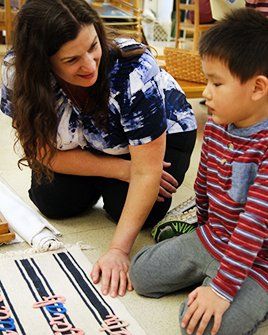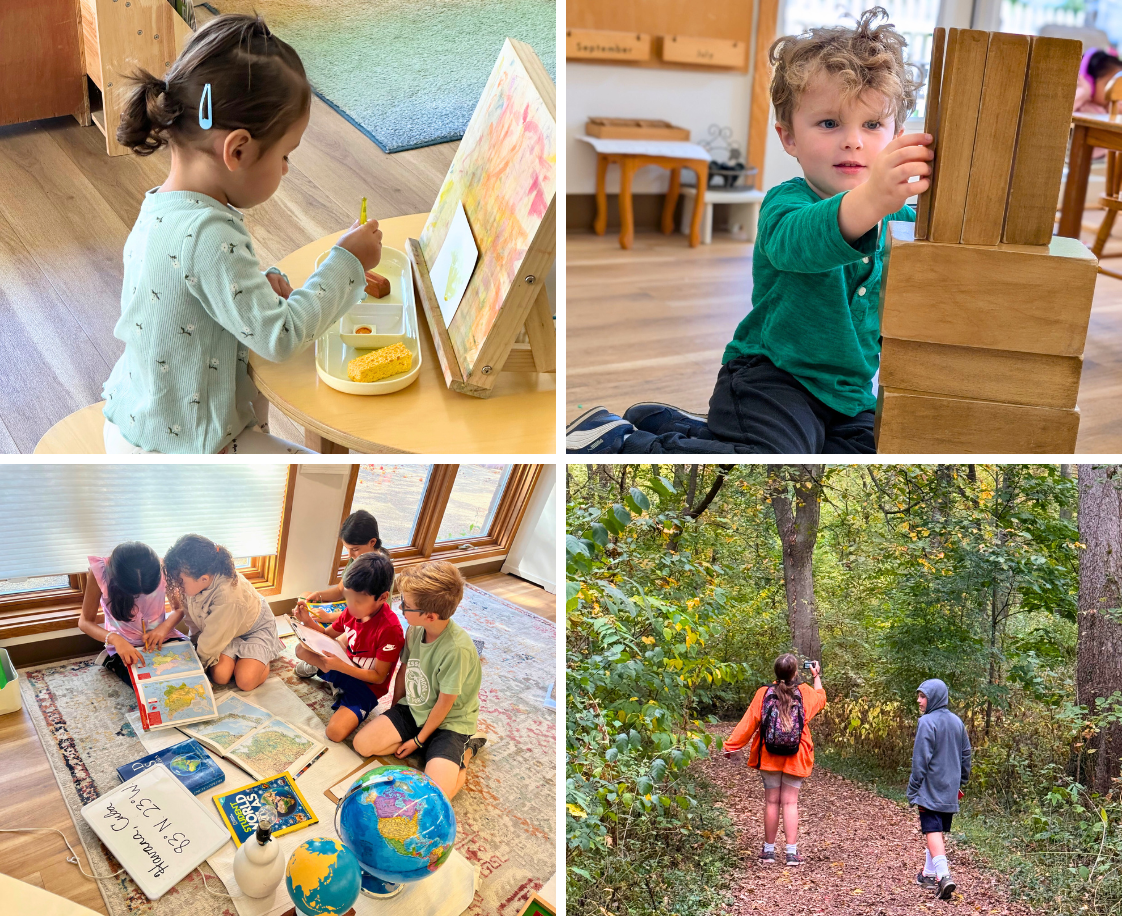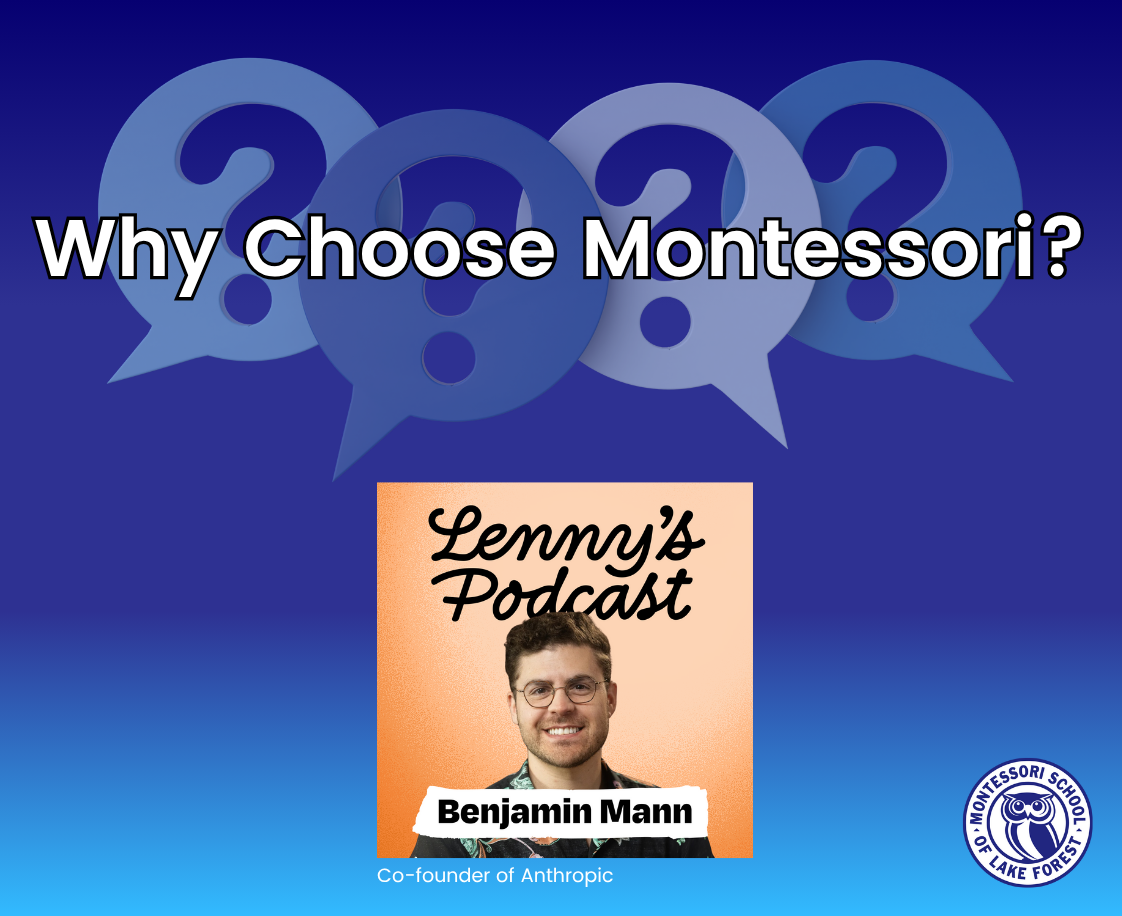How Montessori education unleashes 21st-century kids to love learning and think big.
By Brooke O’Neill
“I hate school…except for recess,” the girl said matter-of-factly as she opened the ballet studio door. Her friend nodded in agreement. Both looked about eight. As they entered, my older daughter, 5, looked at me, puzzled.
“Weeeeird,” she said, shrugging her shoulders. “I love school.”
“Me too!” her little sister, 4, chimed in.
As a parent, that’s how you want your child to feel about learning: excited, happy, joyful. But how do you foster that love—and keep it going?
One word: Montessori.
Wait, what’s Montessori? (Hint: It’s not memorization, rows of desks, or homework)
“These children have free choice all day long,” Montessori wrote of her classrooms. Um, ok. What does that look like when we’re talking about children, some as young as 15 months old?
Well, if there’s one thing Montessori education teaches parents, it’s that our children are much more capable than we think—and when we stop freaking out and micromanaging their every move, they flourish as productive, resilient human beings.
“We both went to Montessori school,” tech pioneers and Google cofounders Sergey Brin and Larry Page said when asked about their early influences. “It was part of that training … being self-motivated, questioning what’s going on in the world, doing things a little bit differently.”
Want your child to trust themselves, think outside the box, and pursue bold visions? Read on.
Independent, hands-on learning from the youngest age
As the day begins at Montessori School of Lake Forest (MSLF), a two-year-old independently makes her way down the hallway to her Toddler classroom. Greeted by her teacher, she puts away her backpack, takes off her outdoor shoes, and puts on her indoor ones.

In a Primary classroom, a three-year-old prepares himself a snack, carefully slicing an apple with a metal cutter. Nearby, another classmate, 5, builds the Trinomial Cube , a set of color-coded blocks that gives children a physical representation of the trinomial formula, laying the groundwork for algebra. Meanwhile, an older friend, 6, prepares to present a report on horses she’s researched and written before the whole class.
Down the hall in Lower Elementary, two seven-year-old boys post flyers for a food drive they’ve organized. Aside from actually driving the car to drop off donations, they’ve handled the whole enterprise entirely on their own, from hatching the idea and partnering with the Northern Illinois Food Bank to rallying the school community to bring in canned goods. 
Personalized curriculum + highly trained teachers = intellectual powerhouse
Peek into a Montessori classroom and you’ll see many things you don’t often see in most schools—toddlers eating lunch with glass plates and cups; preschoolers selecting their own “work,” as Montessori activities are called; elementary students honing time management skills with their own daily schedule; children working quietly at tables and on the floor, solo and in groups, focused in one area or moving freely around the room.

You won’t see rows of desks and a teacher lecturing at the blackboard. Montessori teachers are highly trained to observe and follow the child. Each student has an individualized curriculum, tailored to his or her developmental level and interests.
Indeed, part of the genius of Maria Montessori’s system is how it ties concepts together as a child matures. Hands-on, sensorial work in Toddler and Primary classrooms sets the stage for more conceptual learning in Lower and Upper Elementary. A toddler doing a “Practical Life” work of cleaning the table, for example, will practice making circular hand motions, which builds the motor coordination he’ll need to trace sandpaper cursive letters with his finger, and, eventually, put pencil to paper.

Facts and formulas are not simply memorized; sensory work flows naturally into more abstract concepts, making them tangible. A Montessori student starts as a three-year-old counting out 10 beads on a string, then another 10, then another and so on, until she counts enough to form a cube of 1,000 beads. When she gets to Elementary and hears the mathematical term “10 cubed,” she knows exactly what that means. (Did you?)
Trained in these developmental stages, Montessori teachers know exactly when to present a new work to a child, offering just enough guidance to give the student a sense of challenge and accomplishment—all while fostering academic standards that often exceed what we typically expect of a child that age.
Montessori—and Beyond
Montessori works, but not all Montessori schools are created equal. At Montessori School of Lake Forest (MSLF), children receive superior Montessori education tailored to our global society. Founded in 1966, MSLF serves 120+ students ages infant-age 12. Our international community of families comes from Lake Forest, Lake Bluff, Libertyville, and more than 25 other surrounding cities. What makes us special?
Here are a few reasons why people choose MSLF over our peers:

21st-Century Enrichment Learning for Our Modern World
At MSLF, unique enrichment opportunities bring a 21st-century perspective to Maria Montessori’s timeless educational philosophy, preparing the whole child for the demands of tomorrow. Our curriculum includes:
- Foreign language training (Spanish and Mandarin)
- Physical education
- Cooking + nutrition
- Theater and choir
- Additional after-school opportunities include: chess, robotics, circus arts, piano, soccer, gymnastics, sports, and artist workshops

The North Shore’s Most Comprehensive Outdoor Education and Nature Studies Program
Research increasingly shows time outdoors has critical benefits for children’s physical health, mental wellness, creativity, and concentration—especially in our tech-obsessed society. Housed on a breathtaking 5.5-acre campus complete with wildlife and wetlands, MSLF’s year-round Outdoor Classroom offers every child hands-on training in sustainability, organic gardening, and environmental stewardship.

Teachers Who Truly Know Your Child—and Exceed Expectations
Every school has that superstar teacher. At MSLF, that’s every teacher. Time and time again in parent surveys, families cite MSLF teachers as the #1 thing they love about our school. With an average tenure of 13+ years, extensive Montessori training, and a commitment to your child’s development, our faculty goes above and beyond to deliver a personalized educational experience that far exceeds the traditional classroom.

Real-World Flexibility for Your Real-World Life
We’re all busy. That’s why MSLF offers families the ultimate flexibility in education with a variety of programs and schedule options. Whether you’re looking for a half-day program or are in need of additional care from 7:30 a.m. to after hours, we provide an intellectually enriching environment that brings together independent Montessori learning with the warmth and safety of home.

Supportive Community that Makes You a Better Parent
At MSLF, we empower the family through a culture of kindness, inclusivity, and nonjudgment. Whether that’s giving you Montessori tools to make your child’s bedtime routine a little easier, teaching your preschooler conflict resolution skills, or simply offering a smile when you walk in the door after a rough morning, our community of teachers, staff, and families truly supports each other. Raising children in today’s world is no easy feat and we’re all in this together.
Ready to join us or just want to learn more? Email or call 847-918-1000 to schedule a tour today.
The post Why Montessori? Why Now? appeared first on Montessori School of Lake Forest.








